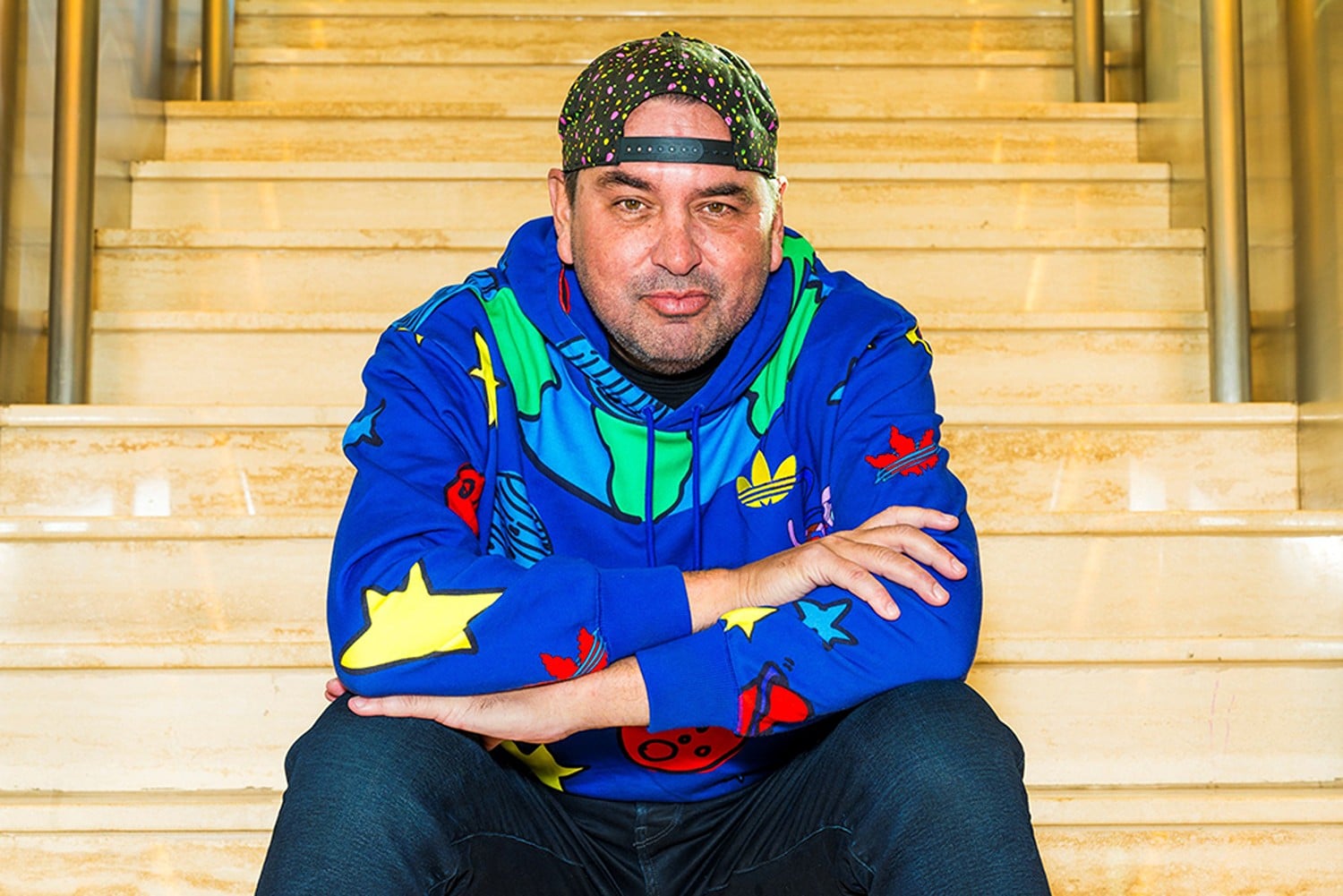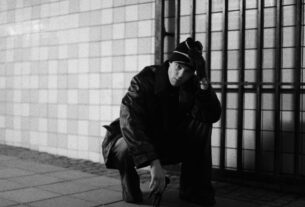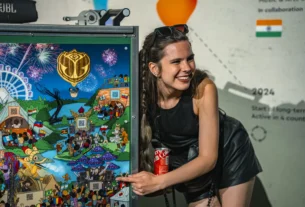Disco Donnie Reflects on Three Decades of Disco Presents and the Evolution of the Festival Scene
In the dynamic world of dance music, few figures have remained as influential as Disco Donnie. From his early days hosting warehouse parties in the ’90s to becoming a key player in what would evolve into SFX in the 2010s, and later reclaiming his company, Disco Presents (previously known as Disco Donnie Presents), Donnie’s impact is undeniable. As he prepares for the year ahead, he took a moment to share insights on the festival landscape and his latest endeavor, SILO Dallas.
Since 1994, Disco Donnie has organized over 20,000 shows across North America, selling upwards of 20 million tickets. This remarkable achievement comes despite facing challenges such as the RAVE Act, fluctuations in electronic music’s popularity, and the global pandemic. Even after three decades since his start in New Orleans, Donnie remains passionate about delivering unforgettable experiences to music lovers.
I still wake up in the morning, and I’m still motivated as soon as my brain turns on. I still love doing this. For whatever reason or however I got here, I feel that this is what I was meant to do.
Disco Donnie
One vital lesson Donnie has learned is to treat others as he wishes to be treated. He humorously remarked that he sometimes questions his choice to be a promoter, but he believes in staying true to oneself and doing things the right way. “No matter how many people wrong you, you just keep being yourself,” he advises, noting that positive actions will eventually return in abundance.
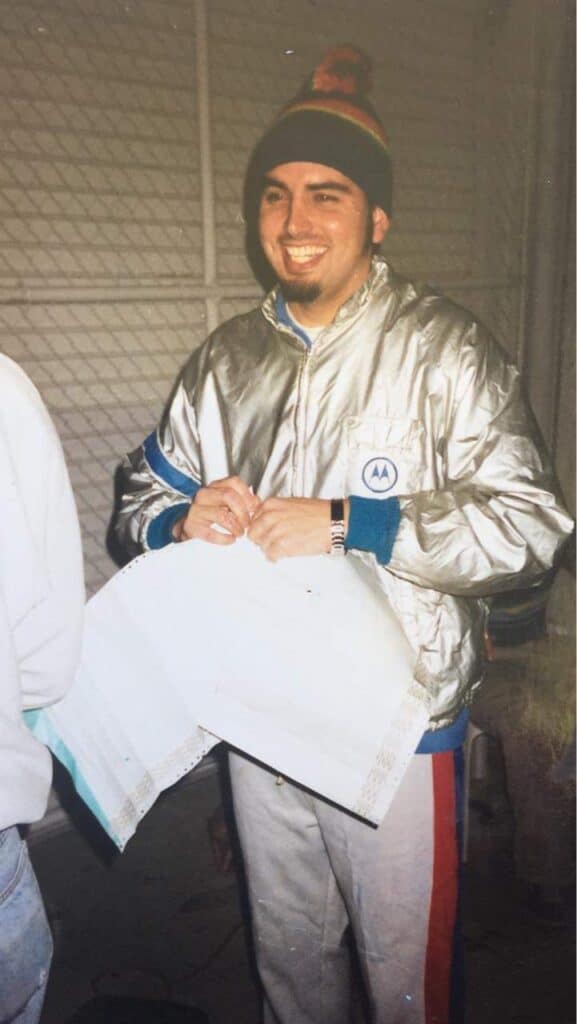
I’ve seen all the rises and the falls and all the episodes. And so I’ve seen this a million times. Every dog has its day. Everything comes, goes in and out, and comes back. And the same thing with electronic music. We were hot, then we weren’t, then we were hot, then we’re not, then we’re just, it’s just a constant cycle. So, the lifers that are here realize that it’s not a sprint, it’s a marathon.
Disco Donnie
The cyclical nature of music trends is a recurring theme in Donnie’s experiences. The rise and fall of various genres, including drum and bass, has been a notable part of his journey. Reflecting on his early days in the mid-‘90s, Donnie recalls being a devoted drum and bass fan, hosting prominent acts as the genre began to gain traction. Despite challenges over the past decade, he sees a resurgence of interest in drum and bass, suggesting it is gaining momentum once again.
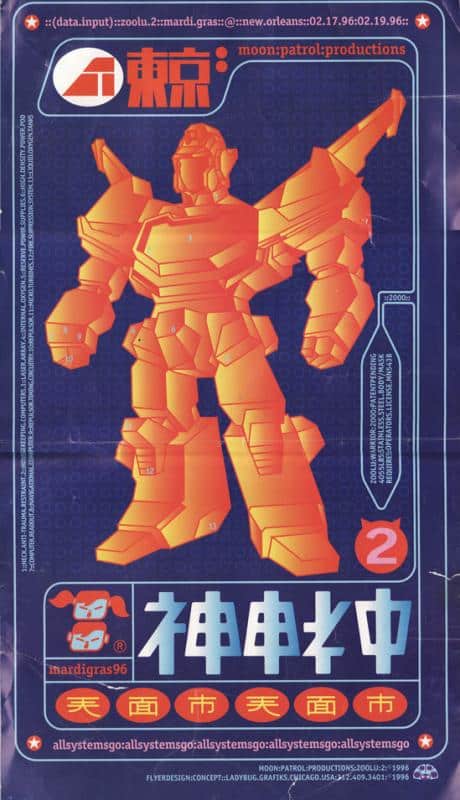
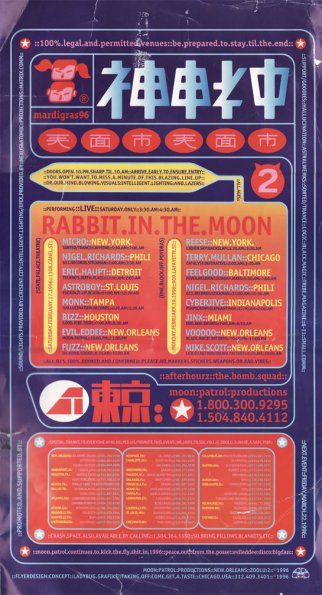
The revival of drum and bass isn’t the only nostalgic trend in electronic music, as many fans reminisce about the classic rave days. Donnie observes that while production quality has evolved, the essence of the scene remains unchanged. “To me, the scene is kind of the same,” he states, highlighting that the fundamental ideals continue despite changes in the audience and environment.
In the ‘90s, that early era was when people thought they were part of something that felt underground or part of something special, like a secret club. It wasn’t true, but people believed it. So I think the only things missing from then until now are the bedsheets and the fact that I’m part of some super secret Mickey Mouse Club. So, other than that, the ideals are still the same. It’s just way bigger and way brighter.
Disco Donnie
Despite some similarities, Donnie acknowledges that electronic music’s acceptance and popularity have changed significantly. Artists are now recognized on mainstream platforms, and technological advancements have made information more accessible to fans. This marks a stark contrast to the aftermath of the RAVE Act in 2001, which severely impacted the scene’s perception and viability.
We were the lowest person on the totem pole. You didn’t want to tell anybody you were a rave promoter. We got knocked way down into the dirt. And so to build our way back up to now where it’s pretty much socially acceptable and everybody knows what it is and everybody’s talking about it, it was a lot. It seems like a no-brainer, but it was a long journey.
Disco Donnie
Donnie’s ability to adapt has been crucial to his ongoing success. His strategy has involved focusing on smaller markets, where competition is less fierce, allowing him to establish Disco Presents events in cities that may not typically be dance music hotspots. This approach began in New Orleans, where he honed his event production skills amidst the city’s vibrant chaos.
After gaining experience, Donnie expanded his reach by fostering relationships with local promoters and investing in shows across smaller cities. By leveraging online ticket sales, he could gather valuable data about his audience and fine-tune his marketing strategy, enhancing his foothold in these markets.
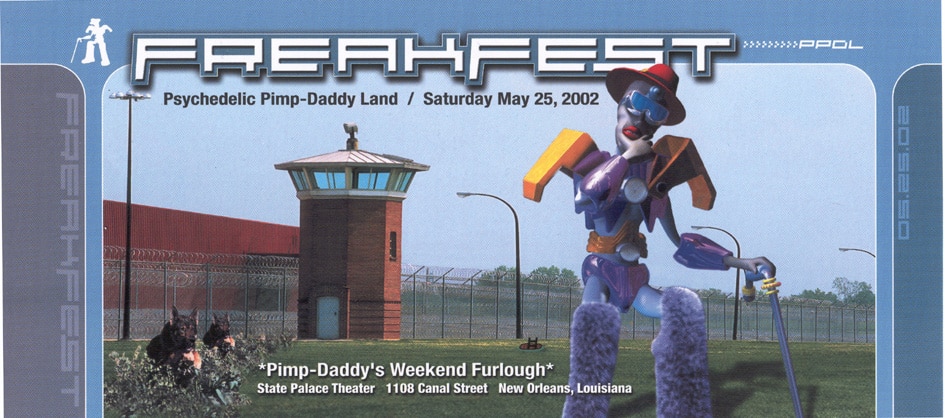
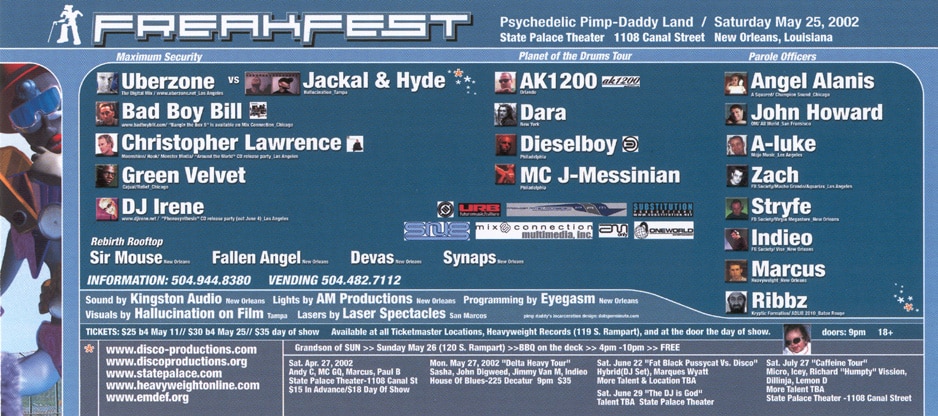
Today, Disco Donnie continues to prioritize smaller markets for his events, frequently hosting shows in cities like Portland, Nashville, and Tampa. While he’s also made a mark in larger cities like New York, Miami, LA, and Chicago, the competition there is intense. “Those cities have multiple promoters there, so they’re trying to kill each other,” he notes, emphasizing the challenges of success in such competitive environments.
It’s just as much easier to enter a market where nobody’s competing, and you’re not banging your head against the wall because you’re the only one doing shows. That seems like a way better prospect than being in a fight every day.
Disco Donnie
Texas remains a key focus for Donnie, where he has hosted numerous successful events and festivals, including Ubbi Dubbi, Freaky Deaky, and Lights All Night. His latest venture, SILO Dallas, marks a significant milestone as the first nightclub he owns. “It’s something I never really wanted to do,” he admits, expressing concerns about balancing promoter relationships with venue ownership.
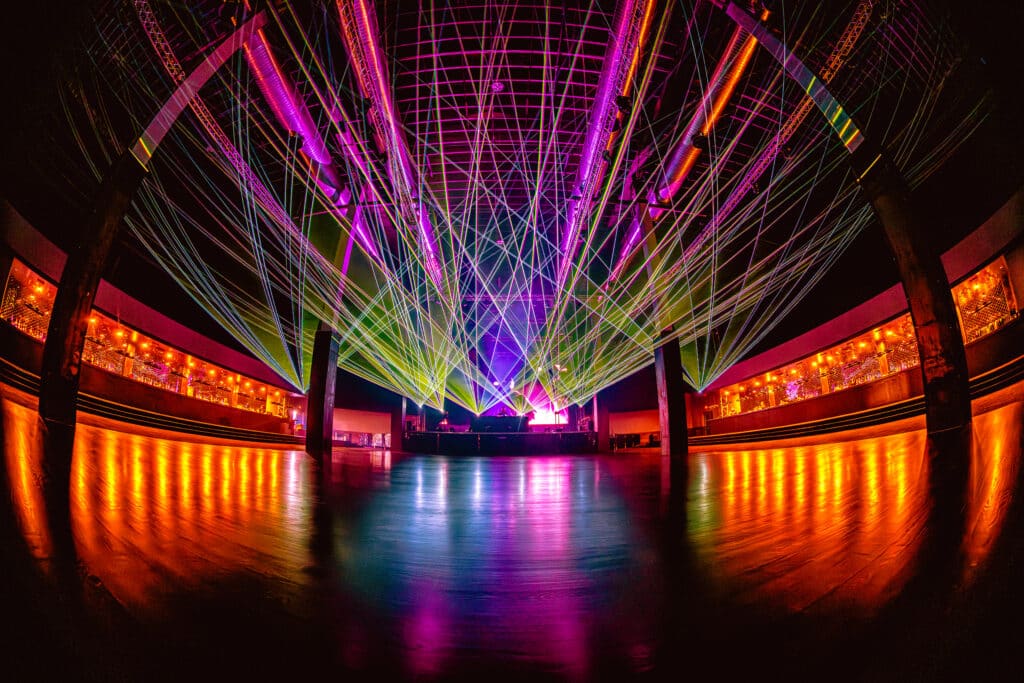
Donnie’s decision to open SILO Dallas stems from his desire to create a unique experience for attendees. He aims to offer something beyond the traditional club atmosphere, emphasizing the importance of storytelling within the venue. “The thing about Silo is it’s a special venue, and it has its own story,” he explains, aiming for an immersive experience that sets it apart from other clubs.
The thing about Silo is it’s a special venue, and it has its own story. So that’s what’s exciting to me. It’s not about you just having the best LED or the best lights or whatever. When you walk up to it, you know you’re going into something special. So that’s a big selling point for the people that are going there right now. This isn’t a club. They’re going into a whole new world. And so that’s what’s exciting to me.
Disco Donnie
Launching SILO Dallas was not without challenges, taking three years to navigate post-COVID regulations and city requirements. Donnie humorously recounts the nail-biting experience of obtaining the venue’s permit just hours before the grand opening featuring Tiësto. “We got our permit six hours before the Tiësto show on the day we opened,” he recalled, highlighting the intense pressure leading up to the event.
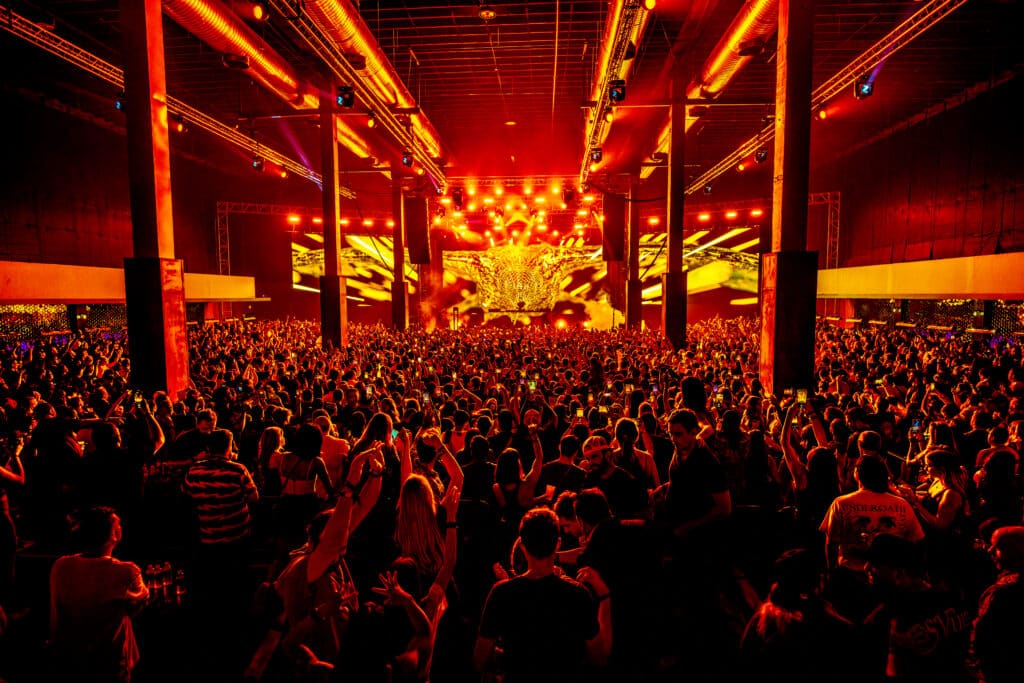
Since its opening, SILO Dallas has thrived, featuring renowned artists like Tiësto, Kaskade, RL Grime, FISHER, Eric Prydz, deadmau5, and REZZ. The control over bookings and production has made it feel like home for Donnie, who emphasizes the venue’s inclusive atmosphere.
It really is for everybody. We’re going to have all kinds of different events in the venue. But it’s good that the ravers finally took the lead here. We’re driving a bus and saying, look, this is how you do it. You guys can get in here. We’re all-inclusive. Everybody’s the same. So jump on the bus with us, and we’ll help you.
Disco Donnie
Donnie expressed gratitude for the positive reception SILO Dallas has received from the community and artists alike. His return to the scene as a talent buyer has rejuvenated his passion for the industry. “It was a crazy ride to get from there to here,” he remarked, emphasizing the energy and commitment that went into the project.
[SILO Dallas] is still a work in progress. We still have lights in boxes in the back that haven’t been put up. So, there’s a lot of growth to go, but the feedback has been amazing so far. It makes you feel good, especially from the artists, agents, and managers.
Disco Donnie
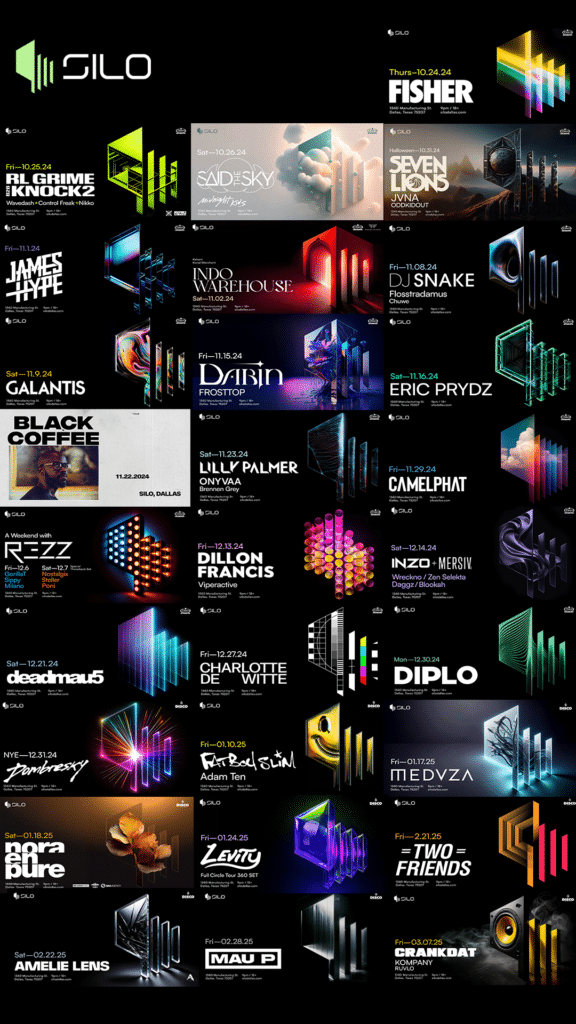
As Donnie focuses on SILO Dallas, he remains vigilant about the evolving festival scene. Rising production costs have raised concerns about the viability of mid-level festivals. “We’ve tried to use our kind of bulk buying and relationships to hold down the cost because the ticket cost can’t keep up with the fan,” he explains, noting that many festivals have struggled or closed recently due to financial constraints.
All the things that go into it, all the risk, the insurance; it’s very challenging. And a lot of times, you ask yourself, why? What are you actually doing this for? So I think you’ll see a lot more festivals probably folding in the next year or so. And hopefully, the ones that stay around and fight it out will have that second life.
Disco Donnie
The landscape is now divided between major players like Live Nation and AEG, and smaller boutique festivals, creating a challenging environment for those in the middle. However, Donnie views this as part of the cyclical nature of the industry he has witnessed over the years.
Reflecting on past challenges, Donnie recalls how promoters faced scrutiny with the implementation of “crack house” laws and the RAVE Act, which targeted events like his. He remembers the struggle of offering harm reduction resources, such as allowing DanceSafe to distribute information at his shows during a contentious time.
Over two decades later, progress has been made, but Donnie acknowledges that further advancements are needed. “We’re moving in the right direction, but it’s not fast enough for many people,” he states, advocating for continued education and harm reduction initiatives in the community.
People are going to go to festivals, whether rock or country or hip hop or whatever, and people will be people and do what they do. And we need to try to keep those people safe. The more they’re informed, or if we can give them extra tools to be safe, the better for everyone.
Disco Donnie
To enhance safety at their events, Disco Presents has adopted various harm reduction strategies, including hosting booths and creating safe spaces for attendees. Donnie emphasizes the importance of adapting these measures to different regions, acknowledging the evolving landscape of festival culture.
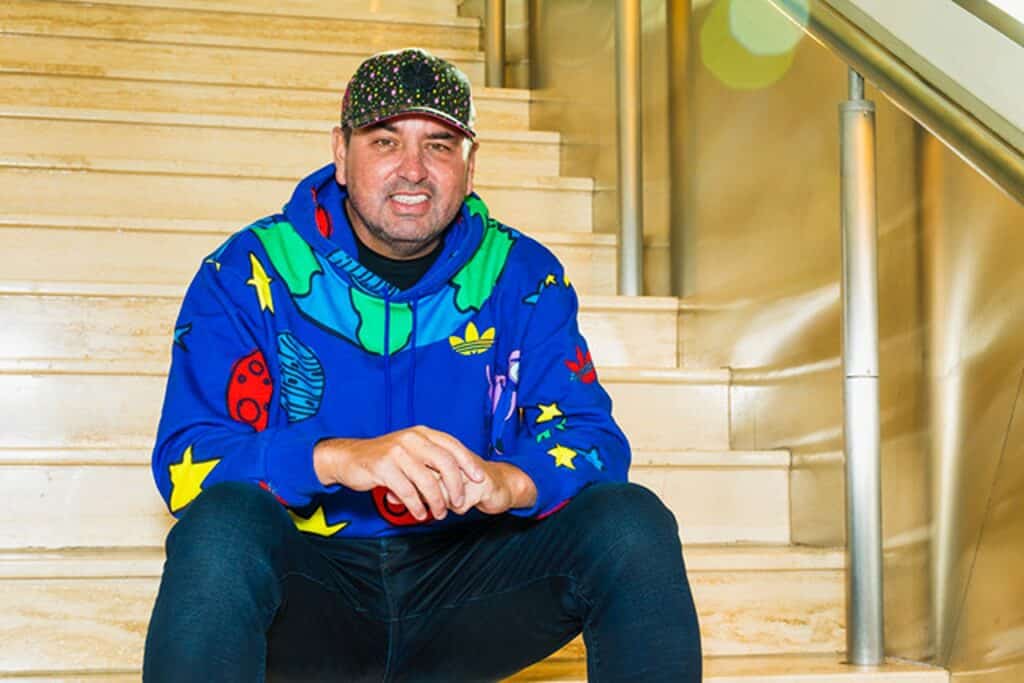
As Disco Presents looks to the future, Donnie expresses a desire to streamline their operations, focusing on what works best and collaborating with partners he enjoys working with. “After you’ve been doing this for so long, you just want to enjoy it,” he says, emphasizing the importance of finding joy in the work.
Trying to do shows in a million places might not be the end-all-be-all. If I tried to open a venue in Dallas five years ago, it wouldn’t have been as successful because this is the right time and the right place. And I have some other deals on venues in other cities that don’t have anything.
Disco Donnie
While specific details about future venues remain under wraps, Donnie notes the shifting landscape of real estate. “What’s crazy is that we’ve been trying to fool landlords into giving us warehouses for 30 years,” he quips, pointing out that now, property owners are eager to transform spaces into music venues.
Donnie believes that the current environment is ripe for creating unique music venues that reflect the ethos of SILO Dallas. “We’re in this time right now because there are plenty of unique, special spaces out there that can be turned into music venues,” he concludes, expressing optimism about the future of his ventures.
Our conversation wrapped up with a discussion about the upcoming Super Bowl in New Orleans, highlighting the parallels between the city’s sports and music scenes, both of which have experienced their share of highs and lows. One thing is certain: Disco Donnie and Disco Presents are committed to nurturing the dance music culture for years to come.
Follow Disco Presents:

